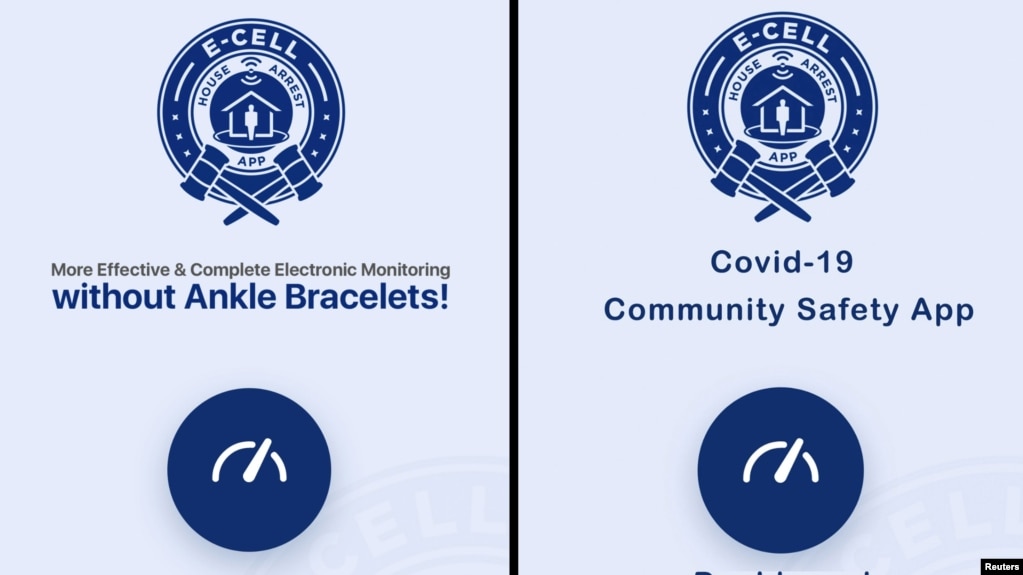
How do you make sure that someone sick with the coronavirus stays home?
As the United States begins reopening its economy, state officials are wondering whether technology being used to enforce house arrest orders could be used on coronavirus carriers.
High-tech tools have been used in some cases to follow confirmed carriers over the past few weeks. But more widespread use has been held back by a larger legal question: Can officials require electronic observation without a court order or evidence of criminal activity?
This question has been raised in places like Hawaii, notes Ronald Kouchi, president of the Hawaii state senate. His state considered the use of high-tech tools to enforce stay-at-home orders given to arriving air travelers. One idea was to require confirmed carriers to wear GPS-enabled devices around their arms. The other was to require those infected to equip their smartphones with tracking apps software programs able to report their movements.
Kouchi said Hawaiian officials were concerned that many travelers were violating the state’s 14-day quarantine order. But he said that the plan for using such technology to follow incoming travelers was halted after Hawaii’s top law enforcement official raised concerns.
“America is America,” Kouchi told the Reuters news agency, noting individual rights and freedoms in the country.
Hawaii’s COVID-19 Joint Information Center released a statement to the office of the state’s attorney general. It reads: the “ideas being evaluated for tracking those under mandatory quarantine in response to the COVID-19 pandemic are right now just that, ideas.”
Similar ideas have already been executed in a few other states.
Seven people who broke quarantine rules in Louisville, Kentucky were court-ordered to wear GPS-tracking devices, notes Amy Hess, the city’s chief of public services. She told Reuters that while she had little interest in the devices, state law requires the enforcement of stay-at-home orders to protect public health.
“We don’t want to take away people’s freedoms but at the same time we have a pandemic,” she said.
Industry officials said they had taken calls from state and local governments about repurposing their high-tech tools for quarantine enforcement. They would not identify the possible buyers.
Kris Keyton works for E-Cell, a company based in Arkansas. Keyton told Reuters he had recently spoken with a state agency that wanted to make changes to his detainee-tracking smartphone app for quarantine enforcement.
He said the changes the agency requested affected the software’s appearance, but not what it does.
“Unexplored territory”
The industry has two main ways for following offenders: One is through the traditional ankle bracelet. The device is connected to the bottom of a person’s leg, so their movements can be observed with GPS technology.
The other is through a smartphone app. It can used either in combination with facial or voice recognition technology or connected through Bluetooth to a device placed around the end of the arm.
One version of the app-and-wrist band solution is already being used in Hong Kong to enforce quarantines on incoming travelers. Poland uses a facial recognition-powered version of the technology that asks users to upload a selfie to prove they are indoors.
Other governments are weighing similar technology, said Robert Magaletta of Shadowtrack Technologies in Louisiana. Magaletta told Reuters he was in talks with countries in Asia, Europe, and Latin America.
In a call with reporters, Jay Stanley of the American Civil Liberties Union noted that some governments were considering the idea of using smartphones in place of ankle devices.
“As a technological matter that probably would be effective as long as too much precision is not expected,” Stanley said. But he warned that efforts to enforce public health measures often create more problems.
Magaletta also said he expects problems as far as the federal government was concerned. He added that he is more worried about observing patients with COVID-19 than he was about enforcing house arrests for criminals.
“It’s uncharted territory,” Magaletta said.
I’m Bryan Lynn.
Raphael Satter reported this story for Reuters news agency. George Grow adapted it for VOA Learning English. Caty Weaver was the editor.
Words in This Story
GPS – n. short for global position system, mapping based on the reception of signals from satellites in Earth’s orbit
quarantine – n. a period in which people’s movements are restricted because they might have been infected with disease
evaluate – v. to study or consider
pandemic – n. a disease spreading over a wide area and affecting large numbers of people
uncharted – v. unexplored or unknown
We want to hear from you. Write to us in the Comments Section.